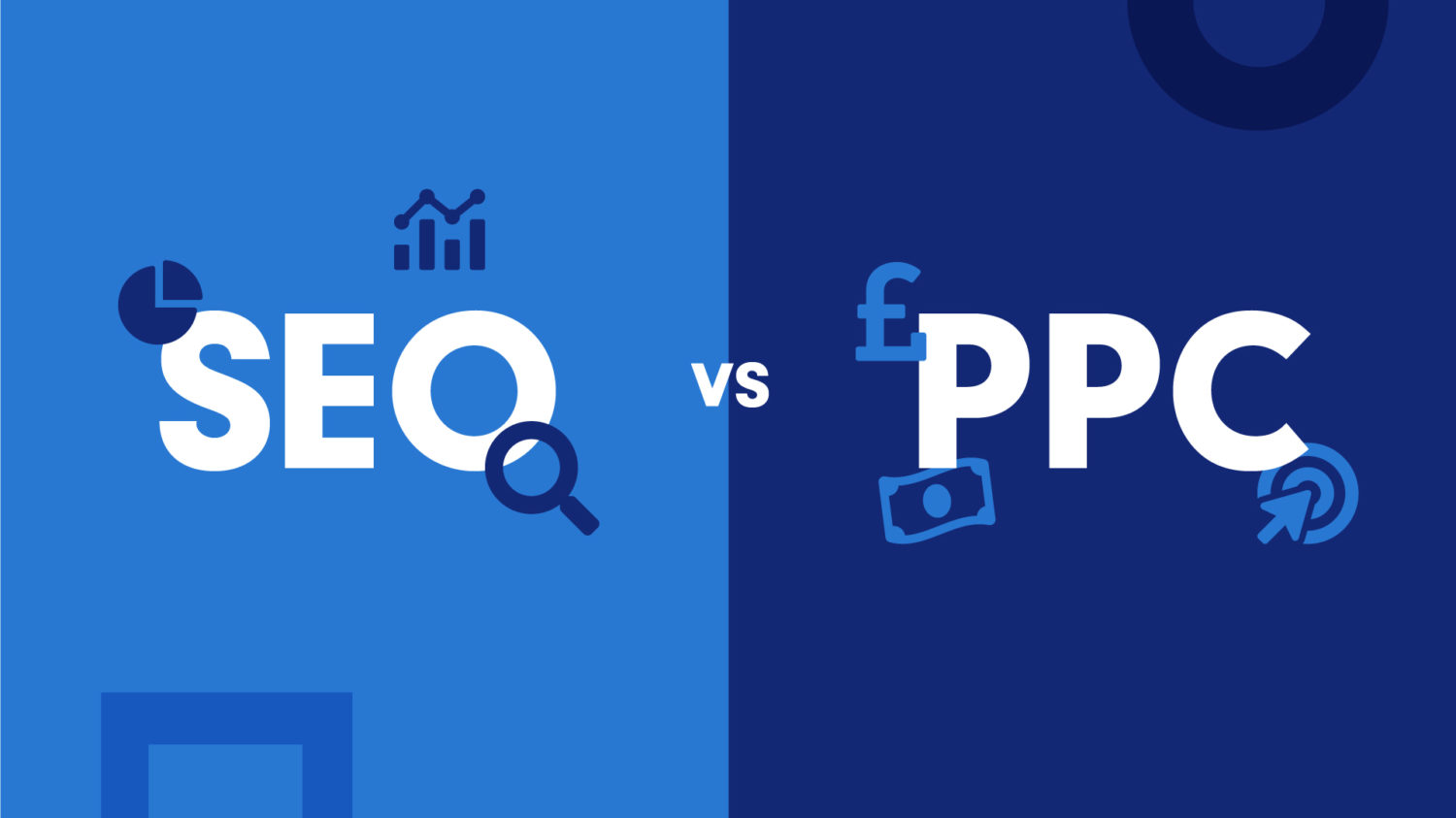How can we help?

Please get in touch using the form below.

SEO vs PPC – Are you still confused when it comes to these topical acronyms?
6 minute read
Search Engine Optimisation (SEO) and Pay-Per-Click (PPC) are both forms of Search Engine Marketing (SEM) tactics which you can use alongside your website to drive traffic and extend the reach of your business.
In this piece, we’ll explore what each of these tactics can achieve for your organisation and how you can use them in conjunction to deliver long-term success.
Search Engine Optimisation or SEO is a form of earned media and is free to implement but challenging to master. The purpose of SEO is to optimise your website for search engines to improve your organic reach, give you greater exposure and encourage more visitors to your pages.
Search engines such as Google and Bing use automated software to ‘crawl’ websites and index them; essentially keeping a record of what the website contains so that they can return the right pages for relevant searches. Pages from your site will begin to rank when the search engine deems them appropriate as likely results to what a user has searched. Search engines use complex and often secretive algorithms to determine how a website ranks. They also review and change these algorithms, making it a challenge to stay on top of the latest criteria, especially when no one is 100% sure of what this is.
However, we know that a search engine’s primary goal is to deliver relevant results for users, using sites that tick several boxes. Below are a few things to focus on when optimising your website’s pages for search engines:
Many free and paid tools can help you determine how optimised your site is for search engines and what you can do to improve your SEO score. We also recommend keeping an eye on your domain authority – this will improve over time based on your SEO performance. Some of the tools we would recommend include:
There are several advantages to using SEO, including:
However, the disadvantages of using SEO include:
If you’re seriously considering investing in SEO, then we suggest kick-starting this journey with an extensive keyword research piece so that you can create content to target these terms. We’d also recommend working with an SEO specialist agency such as Sleeping Giant Media if you’re looking for tangible results, as their experts will be able to support you with your long-term search-related goals.
Pay-Per-Click advertising, or PPC, is a form of paid media you can use to give your site a boost by bidding on keywords. These ads tend to appear at the top of search results, but this depends on how competitive a particular term or phrase is. PPC is an excellent way of giving your business added exposure if you’re competing in a saturated market.
When creating PPC ads, you’ll need to produce ad copy and targeted landing pages if you want to benefit from additional exposure at reduced rates. Google favours sites with a high-quality score. These pages have a good user experience and are delivering on the question asked by the user – a bit like SEO.
Again, it’s all about targeting the right key phrases, terms and words with the right page, ad copy and user experience, which is why we suggest involving experts if you can.
There are several advantages to PPC, including:
However, there are also disadvantages and these include:
When producing a keyword strategy, you’ll need to consider several factors:
We recommend focusing on long-tail keywords to target consumers with high intent. These are users that are already partway through the sales funnel and know what they’re looking for. These phrases won’t necessarily have a high search volume, but they will, potentially, deliver more conversions. An example of a long-tail keyword would be ‘Red Ford KA for sale in Maidstone’ instead of ‘Red Car’ or ‘Cars for Sale.’ Location-based keywords can also be useful if you’re targeting a specific area.
To summarise the idea of SEO vs PPC, there are many reasons why you might choose to use one over the other. For instance, if you’re just starting out, with a low budget and little content on your site, an SEO strategy might be better placed to get your feet off the ground and prevent you from wasting budget. But, if you’re already delivering high-quality content but looking to compete in a competitive market, then a strategic PPC approach might be the best next step.
However, while you could use both of these tactics in isolation, we highly recommend a joined-up approach if you want to see sustainable, long-term success. Your keyword data from PPC can help improve your SEO strategy and identify gaps in your content, while a strong SEO strategy also benefits PPC performance. You can also A/B test ad copy in PPC and then use the results to improve your website’s landing pages and SEO performance. Ultimately, using both will create a strong organic and paid visibility, leading to increased confidence and awareness for your business.
We hope you found this blog useful, and we’d love to hear your success stories when it comes to SEO and PPC. To stay up to date with the latest insights from our team, please register for our newsletter.


Our friendly team of designers, developers and digital specialists are ready and waiting to help with your website project.